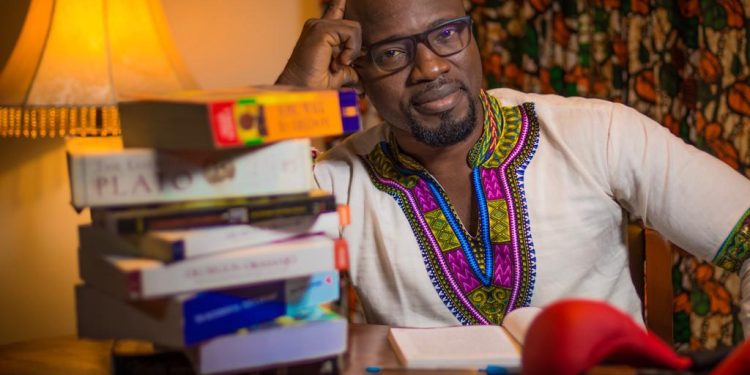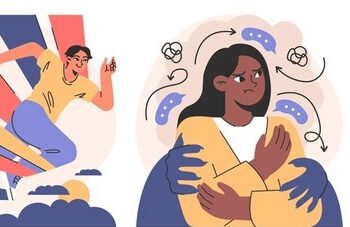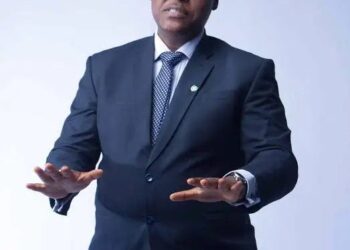Please tell us a little about yourself. What was it like growing up? Where did you go to school?
Okay about myself. I am Adekunle Adejuyigbe. Some call me “NoDash” in the industry. I’m a filmmaker. I grew up in a small town called Akure and at that time I didn’t know it, but it’s actually one of the best places for one to grow up. It’s a quiet town that gives you a different perspective to life than what you see in Lagos. I went to a school called Futa Primary School. That’s in Akure in Ondo state and then for university, I attended the University of Ilorin where I acquired a bachelor’s degree in electrical engineering.
Things have changed in Nigeria quite dramatically in the last 10 years or so. Even then, it’s still not the easiest thing to convince a Nigerian parent that one wants to pursue a career in the entertainment industry. Did you face any hurdles in that regard? Was that always what you wanted to do or did you just somehow stumble across it?
Well, yeah, convincing my parents that I wanted to work in the entertainment industry was not a major issue for me because like I said earlier, I acquired a bachelor’s degree in electrical engineering first, So that base was covered. And I kind of grew up in a family that was very open minded about things like this. Yes, they did not understand entertainment and they were worried, but there was no resistance to say, don’t do it.
My father had always said, whatever it is you feel very strongly that you should do, even if he doesn’t agree, as long as you’re not hurting anybody and it’s legal, then you should go ahead and do it.
So I grew up around that kind of vibe, so it wasn’t a problem when I decided to go into the entertainment industry. However, I know a couple of people were worried, but at some point everybody kind of came around when they started seeing results. And I think what got everybody excited was I told them what was going to happen before it happened. So they realized that I had a plan and that the plan was working. So I think that just gave everybody some level of comfort. And yeah, by the time they started seeing my work, seeing the awards and the many things that I’ve been able to do, I think they just felt very comfortable. And right now everybody is really comfortable with with what I do, of course. So no, I did not have any strong resistance to being in the entertainment industry. Just a few people were worried and concerned. Not resistant.
I didn’t always know I wanted to be a filmmaker because at that point, when I was growing up, I did not even know it was possible for me to become a filmmaker. But I was always a storyteller, right? I was that kid in primary school who would gather all the friends around and tell them stories and that went on through secondary school and so on. I also started writing poems. I think my first poem was published when I was in, I think, JSS 2 or 3. In the American Society of Poets there was a book they used to publish and that was when some of my poems were published for the first time. So I’ve always been a storyteller, but I did not know that I could become a filmmaker because I didn’t know it was possible. But at the point that I started writing stories, I started learning more about the different forms of storytelling such as music, and the literary form. The last thing I discovered was the visual form, which is what filmmaking is. And that’s it. I learnt them all, so to speak. So, I did not know at the beginning that this was what I was going to do because I didn’t know it was possible. But as soon as I learned that it was possible, it became clear to me that, yes, this is the space I need to be in.
You are rated as one of the most outstanding directors and one of the most sought after cinematographers in the Nigerian movie industry You are also said to be the Team Lead of “The Elite Film Team” – Nigeria’s most internationally compliant film team. Tell us about The Elite Film Team.
My journey into the Nigerian film industry has been one of finding problems and solving them. Really, that’s the way I’ve been moving. That’s the way I still move. So when I came, when I decided I was going to work in the film industry, I was a writer and an upcoming director, but nobody would trust me with a job, which is just natural. I therefore had to learned other skills in the process. I realized that if I shot something, there was a way I wanted to put it together in my head, and it’s called editing. So I learned how to edit and I also learned how to edit to get a job.
I then started work and worked at a TV network for a while as an editor, while trying to figure out my way into writing and directing, which is my ultimate goal. And then I started directing music videos and a couple of things here and there, but people couldn’t shoot the images that I had in my head. That pushed me to learn cinematography and in cinematography I won a couple of awards and did a couple of fun stuff. And then I realized that as a cinematographer, you actually need a great team to be able to succeed. So I put together a team. So you see, it’s a process of taking a step forward, finding a problem, then solving it, and then moving on to the next problem and then solving it. That’s really what it is. So this team that I put together was a team that we called the Elite Film Team. And essentially it’s meant to be the best of the best, the hardest workers and the most competent hands. And there was a philosophy around the team. That is, we get everything done and we work. We align with the best global practices. We constantly update ourselves on those practices. So that’s what it is. And that team has gone on now to become even bigger than I could have hoped for. Right now, we’re moving into another phase. I mean, there are other problems that I am seeing, and we are already moving towards solving them. So it’s a continuous process of climbing a mountain, then realizing that there’s a bigger mountain and climbing that one too and realize there’s still a bigger mountain and we just keep climbing. I think you can call us progressive mountain climbers or something…Lol
You are almost better known by your nickname “no Dash”, than by your real name. How did you come about it?
“No Dash” is actually a nickname like you rightly said, but it’s not just a name, it’s a philosophy, right? And it’s a philosophy that I came about when I was at university. We all had nicknames back then, and I did not want to be called Scorpion or Dragon or anything like that. So I asked myself, what do I really believe in? And I absolutely believe that every single one of us has everything they need to become anything they want to become. So this is where “no Dash” came from. Wherever you use a dash, it’s always an indication that there’s something missing. Do you understand? So I’m like saying, I’m the man without a dash. There’s nothing missing. I have everything I need to become anything I want to be. So I’m “no Dash”. And the nickname just stuck since university until now. I’ve heard a lot of people misinterprete it, saying “dash” as in when you dash somebody something. No, that’s not what it means.
07:19 I mean, I find it funny when people say that, but to be honest, that’s not where it came from. It came from nothing missing. It’s a philosophy. And I think anybody can be “no Dash”. Actually, if you feel you have everything you need to become what you want to be, then maybe you’re also “no Dash”.
You have won far too many awards to mention, including best Nigerian Film Award at the Africa International Film Festival (AFRIFF) 2018. Which are you most proud of?
The award I’m most proud of is the next one. It’s always the next one. Don’t get me wrong, I appreciate awards because they mean that a group of people at least at some point in time, felt you were the best. I appreciate them for what they are, but we also can pretend that awards are everything. You know, for every award that’s given, there’s somebody else who will feel that they deserve it too or even more than you. It’s like a presidential election. There’s always somebody else who feels that, oh, yeah, I should have won. You understand? And usually you have maybe six to ten people in a room deciding on every award, and if they change those people, they might give the award to somebody else. So, while it’s nice to appreciate awards because some people felt you were good and you delivered excellence this year, it’s also important to keep it in perspective and remember that it’s just an award.
The real award that I am gunning for is the award of the people.
And it’s not an award that they can give you in a plaque, you understand? It is being able to create art that stimulates thoughts across Africa. And then, consequently, across the world, that’s the real award. That’s the real award that any artist can hope for. And to be able to do that year after year is just a blessing.
Let’s not forget that you are also a highly celebrated music video producer. Which of the big music artistes have you worked with?
I used to make music videos back in the days. I think the biggest artist that I worked with back then was akon. He had a music video that he was shooting parts of Nigeria, and I was the one that shot it, but that’s about it. Yes, I worked with a couple of people here and there but I’ve not done a music video for years. I actually look forward to doing more music videos, but I only want to do the kind of music videos and the kind of songs that I feel can be artistic. But certainly, I appreciate what’s going on in that industry. It’s amazing what those guys are doing right now. I used to be a part of that circle for a while, but it is what it is. So yes, I used to make music videos, but now I just I tell stories, in the film, documentary and TV commercial format.
That brings me to my next question. You are widely seen as a conscientious film maker who produces films with meaningful messages. How influential do you think movies and songs are in our society? Especially amongst the youth. And the second part of that question is this. Do you think entertainers use their influence enough to bring about positive change?
How influential do I think films or art or entertainment is? I think it’s kind of obvious. So this is something I usually say. I say, think about your most celebrated motivational speaker, and then think about your most popular artist, afrobit artist. Then ask yourself, who do a majority of the youth behave like? Like your most celebrated Imam, Pastor, motivational speaker or like your most celebrated artist? And the answer is obvious. So entertainment is magical, and entertainment art is a weapon. And it’s true that sometimes artists don’t pay attention to the power they wield, but I think there are also some artists who are aware. So, I’m very deliberate about the kind of art that I put out. I’m not the kind of person who feels like I should preach with my art. I’m more interested in stimulating thought and leaving you with questions that you feel you should answer than actually giving you an answer. Because we’re all human beings. I’m not sure any one of us really has any definite answer to anything. But the most dangerous thing, in my opinion, is a society where people don’t think or where we don’t have a lot of critical thinkers. So my game, my hope, is to be able to use art to entertain people. And while they are laughing, crying and having fun while watching all these things, they are also thinking. You know. But not something too serious. I feel art should be fun. So that’s where I come from, it should be fun. But while you’re having fun, there should be some thought behind it and you just feel like, oh wait, I never thought it this way before. Can it be that it’s like this? If I can achieve that, then my job is done. But I think we can do more. I think in every society on earth – at least I think that is clear to us now – that the youth and consequently everybody in the society, behave the way they are instructed by the entertainment industry. I mean, just think about it. The values we have, the way we dress, all of those things, they don’t come from church, they don’t come from the mosque, they come from the entertainment industry. So, if we’re a little more deliberate about the messages we pass across in the industry as the society is already taking its shape from the industry anyway – you can now imagine if that industry was deliberate about the shapes that they are putting out.
I think we would be in a very good place.
What would be your advice to a child who sees his or her future in the entertainment industry but whose parents think otherwise? And what advice would you offer such parents?.
Well, for any child who wants to carve out a career in the entertainment industry and for the parents who might be skeptical, the first thing they need to realize is this the entertainment industry is actually an industry. Yes, you see a lot of people wearing jeans and whatever, but for anyone to succeed in this industry, whether it’s music, writing, whatever it is, or film, you have to understand it is actually as serious as banking. And that’s the part that most people miss. You can’t be an unserious entertainer and succeed because there are rules. There are structures. The structure might not be familiar. For example, you might not see people wearing suits and going to a fixed location from eight to five or nine to five, but trust me, the same kinds of transactions, politics, strategy that goes on in any Fortune 500 company goes on in the entertainment industry. So that’s the first thing people should realize, that it’s actually an industry. You know, you can work in the industry without realizing it’s an industry and then you will fail. That happens a lot. But for the people who are successful, they are the people who understand it’s a business and that it runs with its own rules. So for people who are worried, just understand first of all that your child is not going to be playing around. Your child is actually going to get into a serious industry that will be very demanding mentally and all of that. That’s the first thing. And then two, I’m speaking to parents who have a child who wants to work in the entertainment industry now. I’ve seen a lot of people who come to the industry and they don’t stay and that doesn’t mean they failed, it means they learnt the lessons they needed at that point in their lives and they use those lessons to move on. For example, I studied electrical engineering and I can tell you that my engineering background really helps me in critical thinking, in creating structures. As a producer, it helps me a lot. So, sometimes instead of stopping them, maybe you should allow them, while protecting them of course, because it’s also an industry where people can get carried away. You understand? So yes, protect them but don’t rob them of the lessons they need to learn. And who knows, they might end up staying in the industry and becoming the best of the best, right? That’s one.
And for the kids, instead of fighting your parents, try to understand that they are just worried.
So what I found is, help your parents see the structure because that’s what they are worried about. Like oh, all these people just run around. No, we don’t just run around. It’s serious business. Invite your parents to work, have them talk to senior colleagues because what scares most parents is the fact that they don’t have information about the industry. They don’t know how it works. But the minute they start seeing how things work, their mindset changes. I’ve seen that happen over and over again. Almost unanimously, they say, I didn’t know you guys work this hard. Yes, we do. In fact, I think we work harder than most industries and once they see that, they usually come down and say, oh, okay, okay. You guys don’t just run around and play. You guys work hard. Yes, we do. So get them in, introduce them, don’t fight. They just really care about you. So calm down, talk to them and show them. Let them see the work and the level of commitment it demands.
So how would you say your education made you?
So, I mentioned earlier how my background in engineering to date helps me with critical thinking and structural thinking, creating systems and stuff like that. So there is no way, I mean, I’m very certain I could not possibly be where I am today without education. It’s just not possible. Because aside from the course that we study in school, I think the most important thing we learn in school is how to think, right? And any course you study will teach you how to think. Aside from what they are directly teaching you, they teach you structure because you go to class, at the same time you sit and you write exams, you read. It’s teaching you life skills that you end up needing anyway. So without education, I could not possibly be here. I think everybody should get educated. The education does not have to be Western, right? I mean, Africans were educated before any white man ever stepped onto Africa. We didn’t have Western education, but we had our own education. In the process of making films and documentaries I have been around different countries in Africa and outside Africa, and some of the most intelligent people I’ve met, didn’t go to school, but all of them are educated. You can see a farmer who knows everything about herbs, things that are not even in the books, that’s education, is it not? So, yes, you do need an education. You can’t just wake up and just coast through life. You need information to help your brain develop enough to be able to process things. So, yeah, we all need education. And nowadays, I think it’s inevitable that everybody needs to understand Western education, because that’s pretty much what obtains all over the world at this point. So it doesn’t hurt to know that. And if you have your traditional education too, that’s fine, but you must get an education in whatever form it comes.
PHOTO REFERENCE: www.premiumtimesng.com



















































































 EduTimes Africa, a product of Education Times Africa, is a magazine publication that aims to lend its support to close the yawning gap in Africa's educational development.
EduTimes Africa, a product of Education Times Africa, is a magazine publication that aims to lend its support to close the yawning gap in Africa's educational development.